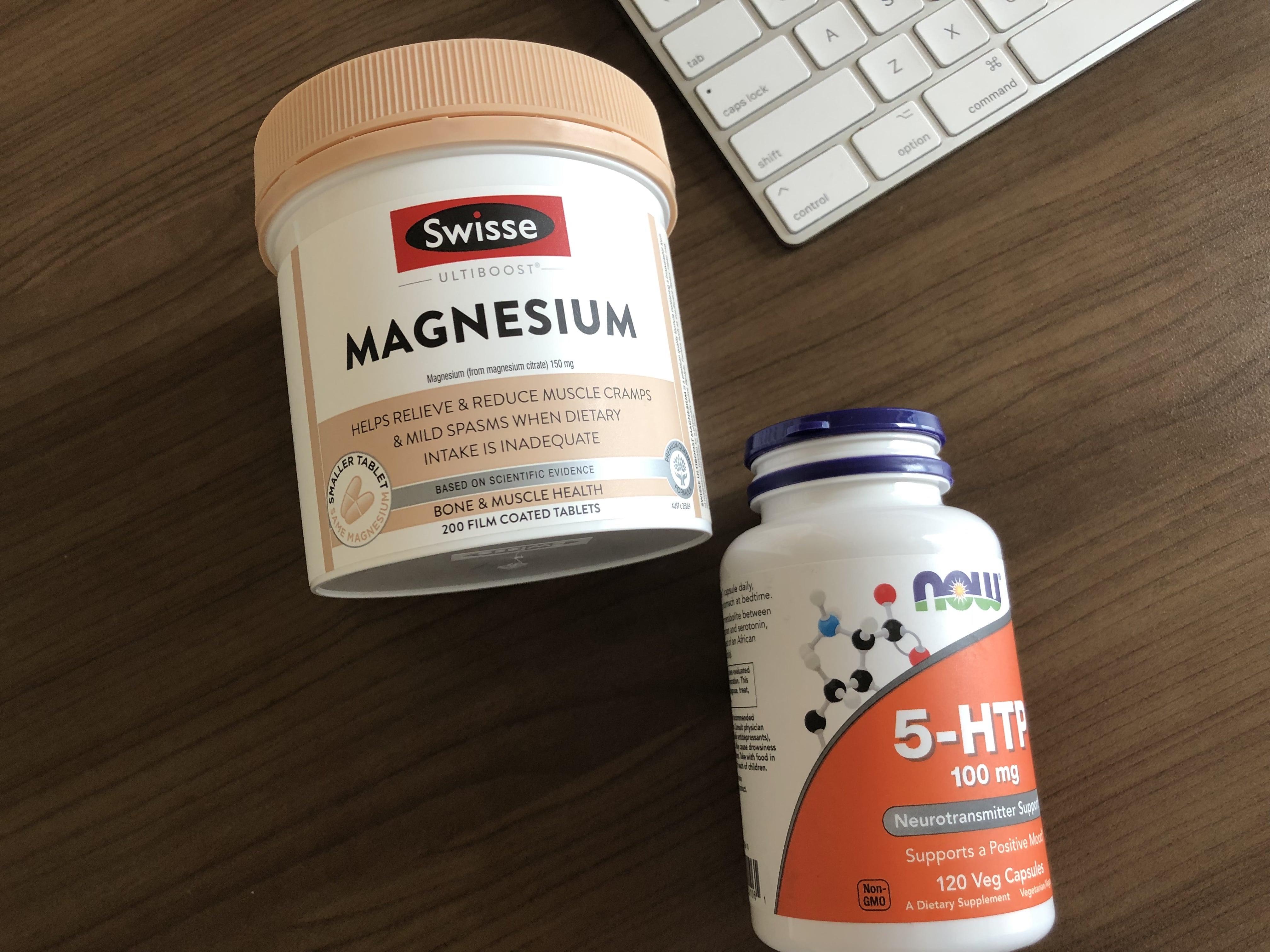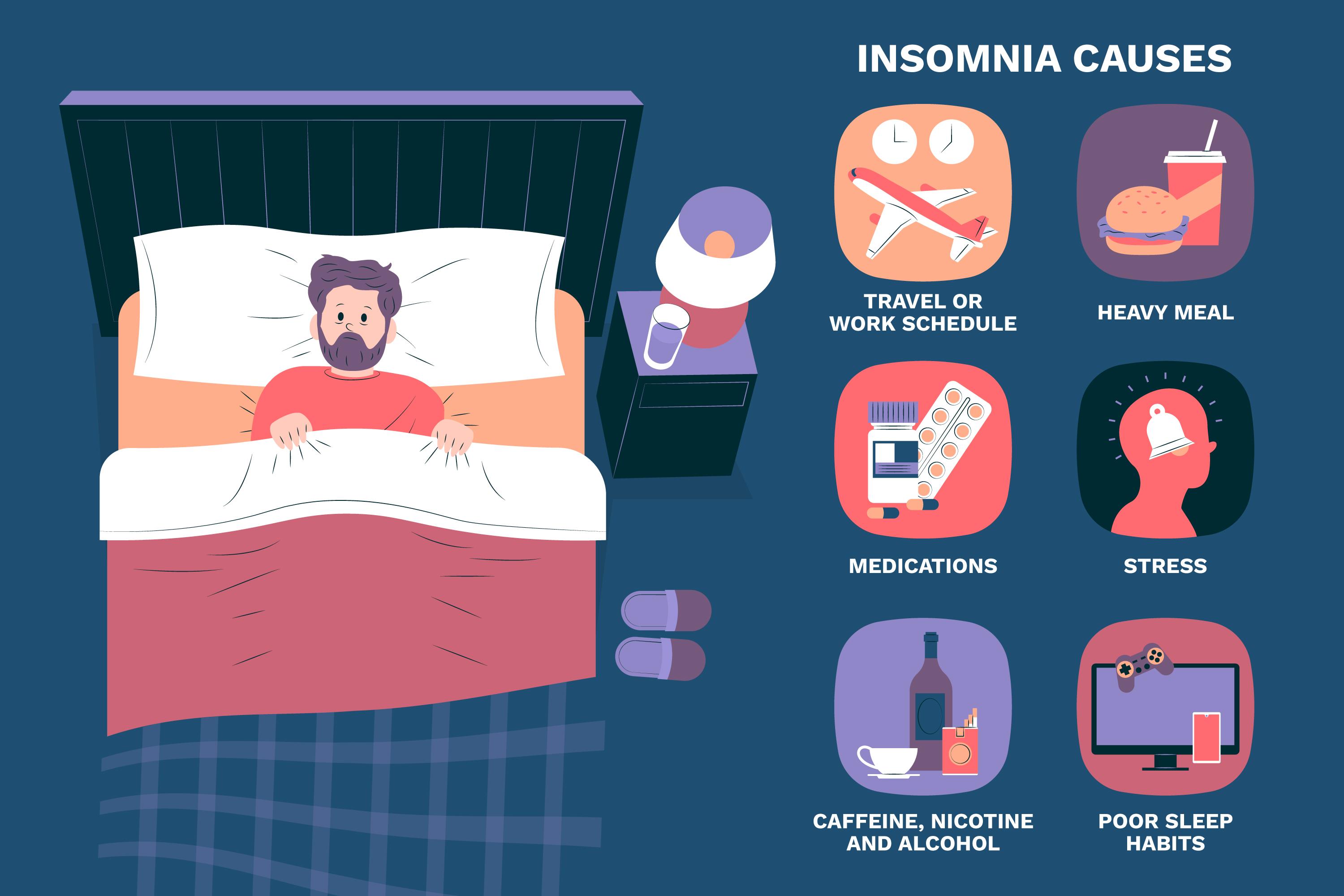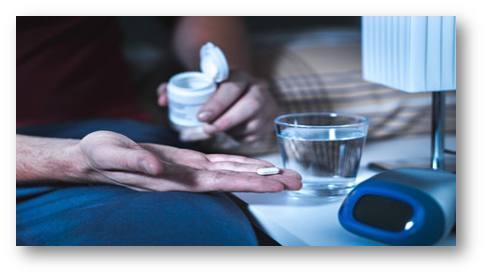Table of Contents (Click to show/hide)









How do stress & insomnia come to my life?
Sitting in the first lockdown, I felt like my experience was not the same as those around me. I heard people complaining about being bored and having nothing else to do while I was trying hard to pick up new skills and develop a routine. I was even busier and more occupied with my new hobbies: I managed to build my own website, write articles, keep daily powerlifting in the park and deepen my coding skills. With that being said, I found myself with no difference before and after the lockdown, in fact, I was busier. I can always find something to do to keep myself busy. So I adopted & adapted to make sure that I took advantage of every second. However, I didn't realise how much this affected my mental health. Two years later, I'm starting to feel like I am suffocating - I haven't taken any break for almost three years.
With the growing numbers on my to-do list, I become anxious all the time and can't sleep at night. Whenever I close my eyes, all I can think about is how I can do this better or what I need to do before I finish that. The non-stop thoughts haunt me from getting the rest I deserve and make me feel stressed in the daytime.
In light of my uncomfortable experience, I had a handful of people telling me what not to do rather than what to do. So I decided to write an article to tell my journey. I want to share my story to remind my readers to relax and share the effective supplements I am taking for easing stress and helping me get to sleep.
My culture background roots my personality
It's commonly known that Asian people are naturally stressed heads. Research has found that some norms within many Asian cultures – not talking about their feelings, believing that hard work and perseverance can solve all manners of crises – make it difficult for some to accept the existence of certain mental illnesses or understand the benefits of supplements. Give a second thought, I realised that my stress and insomnia friended with me a long time ago. My mum likes to compare me with others which she thought would drive me to better my performance. Not just my parents, my school, relatives or the whole environment that I grew up in pushed me to be better. I feel like I am trying to get out of a never ending highway with no resting stop.
A quiet, private space to relax is essential
When I was in university, I stayed in a 6-people dormitory. My roommates often played computer games after the lights were off. The late-night, bright artificial screen light and never-ending speaker sound stopped me from falling asleep. This lasted for 4 years until I rented a room and lived in a shared house. I thought this was a new start, but that's not the case. My housemates often hang out with their friends or play music at late night. I switched houses for the last 2 years until I finally got my first 1-bedroom apartment. It was until then that I finally had my own space.
But the world keeps running, and it never stops. When my work gets extremely busy, I would have back-to-back meetings, which won't allow me to have a meal. After getting home from the gym, I need to work on my website and keep up with the industry updates. If I happen to be learning a new skill in a period, I usually go to bed around 1:30 am.
But I couldn't sleep.

What is insomnia?
I started to try to find out the the reasons behind all the insomnia. It is a sleep disorder described as insufficient quantity or quality of sleep over a long period, as well as difficulties falling asleep, remaining asleep, or waking up too early. Insomnia disorder affects around 30% of all individuals and 6-10% of those who have severe symptoms [1].

Consequences of insomnia
Individuals with insomnia showed memory impairments, increased reaction times, short-term memory issues, diminished efficacy, cognitive impairments, poor physical function, and mortality in all age groups [2]. Sleep disturbances are also linked to a lower quality of life and overall wellness and high healthcare costs, stress, and symptoms of depression[3].
How to treat insomnia?
Medicinal and non-medicinal treatments are currently available for insomnia. There are poor to medium quality evidence, or no significant clinical results, regarding the effectiveness of nonmedicinal therapies in insomniacs. [4] The American National Institutes of Health's Sleep Problems Conference has concluded that medications used routinely to treat insomnia have more risks than benefits and are not recommended for the elderly.[5]

Use of Magnesium for insomnia
My friend, who is a personal trainer, recommends trying Magnesium. He mentioned that it's one of the major ingredients in the ZMA that I always take. Magnesium is the body's fourth most abundant cation, and it's the second most abundant intracellular cation[6]. Magnesium is required for many enzymatic reactions, particularly those involving energy metabolism and neurotransmitter production. [7]
- The N-methyl-D-aspartate (NMDA) receptors found on nerve cells and aid brain development, memory, and learning, are gated by magnesium [8]. Magnesium sits inside NMDA receptors in healthy adults, preventing them from being stimulated by weak signals that may activate nerve cells unnecessarily.
- Magnesium binds with GABA (gamma-aminobutyric acid) receptors. GABA is a neurotransmitter that helps calm neuronal activity, disrupting sleep [9].
- Magnesium deficiency leads to depression, which is linked to an increased risk of sleeplessness. Magnesium has been helpful with depressive symptoms [10].
- Magnesium helps muscles to relax by acting as a natural calcium blocker. Calcium binds to proteins like troponin C and myosin in muscles, causing them to constrict [11]. Magnesium competes with calcium for the same binding sites in muscles that help relax. In one study, The patients showed more sleep time and efficiency after 8 weeks of magnesium treatment[12]
Use of Melatonin for insomnia
Apart from Magnesium, my general practitioner also prescribed me 3mg Melatonin to help me fall asleep faster. Melatonin is secreted by the pineal gland in the body. It is important to regulate the organism's circadian rhythm, which affects a wide range of physiologic, neuroendocrine, and behavioural functions. It has the largest plasma concentrations at night and is barely detectable during the day [13].
Melatonin binds to receptors in the central nervous system, promoting sleep and changing the sleeping phase. It can also lower dopamine levels, a hormone that helps you stay awake and has a role in several portions of your eyes' day-night cycle [14].
Ochoa-Sanchez et al. [15] showed that melatonin receptor agonists had much more favourable therapeutic effects of sleep promotion and regulation when compared to prescribed benzodiazepines. Grima et al. [16] found a significant improvement in sleep quality and efficiency and a reduction in fatigue and anxiety symptoms on only 4 weeks of melatonin medication.
My thoughts in Magnesium and Melatonin
I have been taking this combo for more than 8 months at the time of writing. Here are my two cents
- It works
- The combo is best to be used to reset your bio clock & sleeping routine. Don't treat it as a sleeping pill if it's really late.
- I kept having vivid dreams every time I took Melatonin, although it didn't affect my sleep quality.
- Pause for 2 weeks every 4 months often works the best for me.
Both Magnesium and Melatonin prepare our bodies for sleep. Both can be used as supplements if you have sleep problems. Melatonin helps lure the body to sleep and reset the circadian clock, and new research suggests that Magnesium can help us sleep longer and wake up feeling more refreshed when combined with other healthy bedtime behaviours.
In the meantime, we should all keep in mind that it is essential to acknowledge your own capacity and proactively take breaks before getting overwhelmed. Knowledge here is not a treatment, but it sure helps give control, and understanding how things work is a strong defuse. Please seek help immediately from medical professionals if you feel unwell mentally.
References
- Roth, T., 2007. Insomnia: definition, prevalence, etiology, and consequences. Journal of clinical sleep medicine, 3(5 suppl), pp.S7-S10.
- Blackwell, T., Yaffe, K., Ancoli-Israel, S., Schneider, J.L., Cauley, J.A., Hillier, T.A., Fink, H.A. and Stone, K.L., 2006. Poor sleep is associated with impaired cognitive function in older women: the study of osteoporotic fractures. The Journals of Gerontology Series A: Biological Sciences and Medical Sciences, 61(4), 405-410.
- Babar, S.I., Enright, P.L., Boyle, P., Foley, D., Sharp, D.S., Petrovitch, H., and Quan, S.F., 2000. Sleep disturbances and their correlates in elderly Japanese American men residing in Hawaii. The Journals of Gerontology Series A: Biological Sciences and Medical Sciences, 55(7), pp.M406-M411.
- Saddichha, S., 2010. Diagnosis and treatment of chronic insomnia. Annals of Indian Academy of Neurology, 13(2), p.94.
- National Institutes of Health, 2005. NIH state-of-the-science conference statement on manifestations and management of chronic insomnia in adults. NIH Consens Sci Statements, 22, pp.1-30.
- Altura, B.M., 1991. Basic biochemistry and physiology of Magnesium: a brief review. Magnesium and trace elements, 10(2-4), pp.167-171.
- Morris, M.E., 1992. Brain and CSF magnesium concentrations during magnesium deficit in animals and humans: neurological symptoms. Magnesium Research, 5(4), pp.303-313.
- Newcomer, J. W., Farber, N. B., & Olney, J. W. (2000). NMDA receptor function, memory, and brain aging. Dialogues in clinical neuroscience, 2(3), 219–232. https://doi.org/10.31887/DCNS.2000.2.3/jnewcomer
- Poleszak E. (2008). Benzodiazepine/GABA(A) receptors are involved in magnesium-induced anxiolytic-like behavior in mice. Pharmacological reports : PR, 60(4), 483–489.
- Eby, G. A., & Eby, K. L. (2006). Rapid recovery from major depression using magnesium treatment. Medical hypotheses, 67(2), 362–370. https://doi.org/10.1016/j.mehy.2006.01.047
- Potter, J. D., Robertson, S. P., & Johnson, J. D. (1981). Magnesium and the regulation of muscle contraction. Federation Proceedings, 40(12), 2653–2656.
- Abbasi, B., Kimiagar, M., Sadeghniiat, K., Shirazi, M. M., Hedayati, M., & Rashidkhani, B. (2012). The effect of magnesium supplementation on primary insomnia in elderly: A double-blind placebo-controlled clinical trial. Journal of research in medical sciences : the official journal of Isfahan University of Medical Sciences, 17(12), 1161–1169.
- Sumaya, I.C., Masana, M.I. and Dubocovich, M.L., 2005. The antidepressant‐like effect of the melatonin receptor-ligand luzindole in mice during forced swimming requires expression of MT2 but not MT1 melatonin receptors. Journal of pineal research, 39(2), pp.170-177.
- Hickie, I.B. and Rogers, N.L., 2011. Novel melatonin-based therapies: potential advances in the treatment of major depression. The Lancet, 378(9791), pp.621-631.
- Ochoa-Sanchez, R., Rainer, Q., Comai, S., Spadoni, G., Bedini, A., Rivara, S., Fraschini, F., Mor, M., Tarzia, G. and Gobbi, G., 2012. Anxiolytic effects of the melatonin MT2 receptor partial agonist UCM765: Comparison with Melatonin and diazepam. Progress in neuro-psychopharmacology and biological psychiatry, 39(2), pp.318-325.
- Grima, N.A., Rajaratnam, S.M., Mansfield, D., Sletten, T.L., Spitz, G. and Ponsford, J.L., 2018. Efficacy of Melatonin for sleep disturbance following traumatic brain injury: a randomised controlled trial. BMC medicine, 16(1), pp.1-10.









